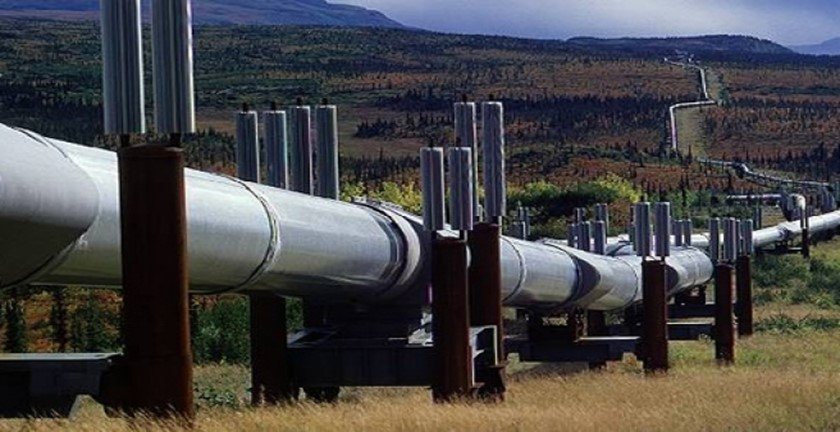Image source: worldbulletin.net
Keystone pipeline is an oil pipeline system designed to transport an extracted barrel of crude oil from Canada. The pipeline is designed to carry 830 000 barrels of petroleum per day. The barrels are transported from the oil sands/tar sands of boreal forests into the oil refinery industry or port at the Gulf coast.
Due to the high polluting nature of oil sands, there is more controversy on whether the project benefits outweigh its environmental damage. This articles lists the pros and cons of Keystone pipeline and help you understand more on its impact.
Pros:
1. Boost trading relationship: Building the pipeline through the Canadian borders creates a great trading relationship between Canada and the US.
2. Reduced oil prices: Transportation of oil-sand into the America Gulf coast will lead to reduces prices of oil since more oil is extracted.
3. Energy independent: Keystone pipeline project is aiming at ensuring there will be energy independent in North America by 2035.
4. Improves energy security of USA: The transportation of piped oil from Canada which is the world’s second-largest oil-rich region results in a stable supply of oil source in the USA.
5. Safe transportation: Building the pipeline provides a conduit for the safe transfer of oil compared to when transported through railroads or tankers which are prone to explosions.
6. Job creation: The pipeline systems opens temporary job opportunities to many US citizens during the construction period. More people are employed on a permanent basis in the refinery industry.
7. Boost economy: Pipeline construction boosts the economy of the country. Building Keystone pipeline project will boost the American economy by $3.4 billion.
8. Reduced emission of green gases: Although the project is environmentally harmful, the technology used in oil extraction and protection leads to the reduced emission of green gases.
9. Reliable product to Gulf coast refiners: The US Gulf coast refiners will have a reliable source and continue processing the tar sand oils and the project completion. This can support US jobs compared to unreliable oil suppliers from Mexico and Venezuela.
10. Creates efficient Canadian economy: Keystone reduces the high cost of production of oil from the petroleum reserves. It also helps Canadian producers raise prices due to better quality petroleum as well as reduce on the overhead cost.
Cons:
1. Oil leakage: Oil leakage from the pipelines carrying oil-sand petroleum causing more environmental damage than a leakage from a standard oil pipeline.
2. Carbon pollution: Production of oil-sands petroleum lead to the emission of carbon gases into the environment. Transportation of oil over long distance also increase carbon footprint.
3. Fragmentation of forest: Many energy companies destroy the forest by strip-mining the sands and heating them to release oil leading to forest fragmentation. The pump streams can also interfere with the animal life cycle.
4. Contributes to climate change: Oil through keystone pipeline produces more metric tons of carbon into the atmosphere as compared to conventional oil. Carbon emissions from the extracted oil contribute to climate change and global warming effects.
5. Affect marine life: Waste from oil extraction can be dumped in open ponds or water catchment area and the toxic components destroy marine life. Fish in the ponds develop a tumor.
6. Reduces investment in cleaner energy: Oil stability through keystone pipeline reduces countries investments into clean energy technologies that focus on reducing environmental impacts.
7. Cause spread of diseases: Oil spills damage underground water supplies which can cause the spread of diseases like renal failure and cancer.
8. Tar sands affect the national and local economy: Burning of the tar sand increases earth temperature by 2 degrees Celsius and this reduces the US GDP by 2.5% as well as directly affect the local economy.
9. Cutting jobs: Instead of pushing the Keystone pipeline to create jobs, many oil companies have been laying down employees despite generating a lot of profits.
10. Minimum wage: Majority of temporary keystone job opportunities offer minimum pay to the support employees.



